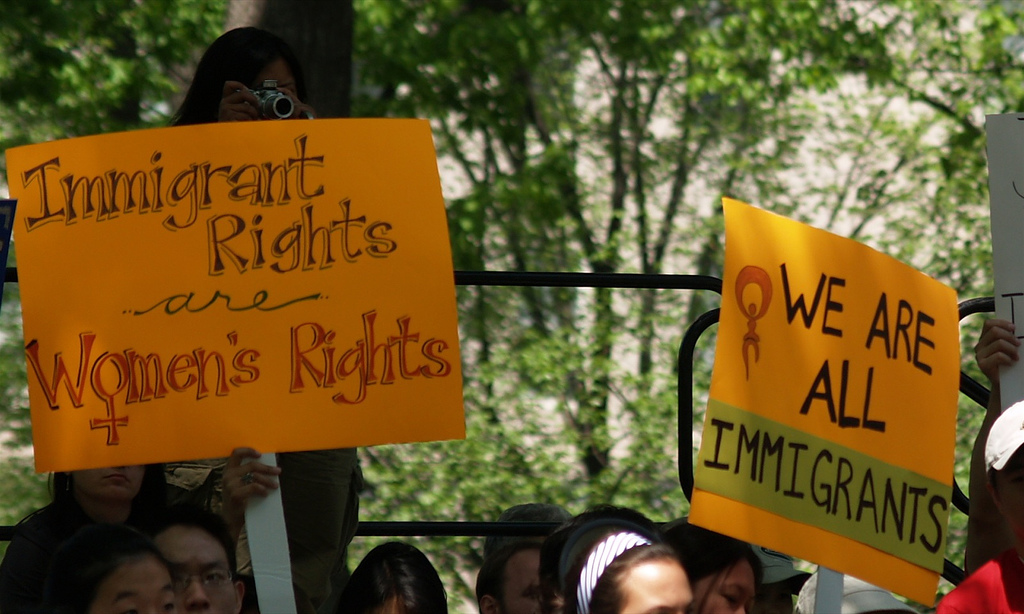Immigrants and their children born in the U.S. make up 27 percent of the U.S. population according to the Migration Policy Institute (MPI). The legal amount of immigrants has been continuously growing since 2013 (MPI). Immigration is the act of coming to live permanently in a foreign country, in this case, the United States. President Donald Trump recently said that he is going to prepare an executive order to reform the birthright law.
“If that law gets changed, then the kids that are born are not going to have the same opportunities,” says junior Naomi Aguado. “Their parents come here for them to have a better life.”
As of right now, the 14th amendment protects the children of immigrants who are born in the United States. The 14th amendment states that all persons born or naturalized in the United States are citizens of the United States. Some people like this law, but other people think differently about the way people use this law.
“The 14th amendment was made to give former slaves and their children citizenship,” says sophomore Aidan Davis. “Not [to] reward people for illegally crossing the border.”
At Northwood, there are many students that have a connection to the immigration process, whether they have immigrated or a family member has. Many students’ parents were born outside of the U.S. Mexico contributes the highest number of immigrants to the U.S., followed by China, then India, according to MPI.
“I was born in Houston, Texas, and my parents came from Mexico,” said senior Norely Lopez.
Mexico currently has a poverty rate of 44 percent compared to the United State’s 15 percent. Compared to the specific states that are in Mexico, that number is just the beginning. Because of poverty across Mexico, education is a big problem as well.
“I want to go to a four-year university because my parents didn’t get the chance to do that,” Lopez said.
Like Davis, President Trump is not in favor of the 14th amendment and wants to change it.
“There’s a lot of bad things where [immigrants used to] live,” says Aguado. “They don’t have the same opportunities there as we do here.”
According to a study by The Pew Research Center, the main problems in Mexico are crimes, economic problems, illegal drugs, and corrupt political leaders. So those reasons could be why some Mexican immigrants want to come to the U.S. as well.
“I personally think that [changing the birthright law] is unfair for people that are citizens here,” says Lopez. “They’re taking away their educational privileges.”
Although Davis opposes illegal immigration, he is supporting legal immigration in America. There are around 43 million foreign-born people living in the U.S. and around 20 million of that number were naturalized, according to the Center for American Progress.
“I see immigration as a necessity to the United States’ economy when done legally,” Davis says.
Immigration helps the economy in major ways. Around 49 percent of the immigrants that come here are naturalized, although it may not seem like it. But still, the other 51 percent of people immigrate to America illegally(MPI). Trump has raised awareness of this issue, so everyone now has their own opinion on whether the government should stop immigration, or continue to let it happen.



